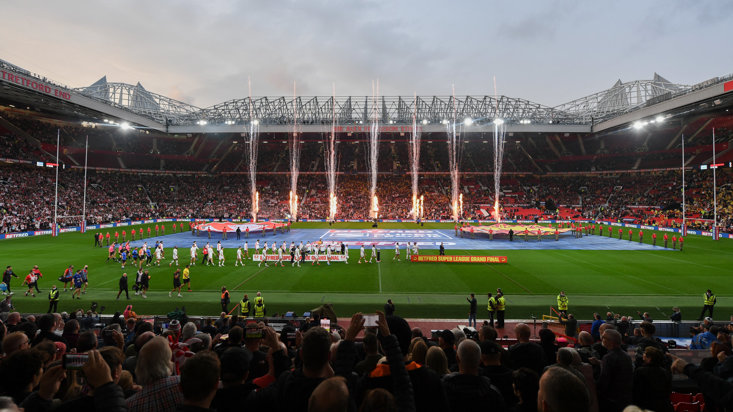He was the visionary who brought rugby league kicking and screaming into the modern era, but also the ‘big bad wolf’ who threatened the future of many of the game’s biggest clubs amid talks of mergers, liquidations and revolutions. Maurice Lindsay was a man who wasn’t afraid to get things done, and rewrote rugby league history in the process.
Lindsay, whose death at the age of 81 was announced on Tuesday morning, brought untold success to Wigan Warriors in the 1980s and a brand new face to the entire sport in the 90s. He continued to hold rugby league in his spell long after his retirement, with his role in the Betfred Super League’s formation going down as one of the key drivers in the sport embracing a new era and a new way of thinking.
After joining Wigan as chair in 1980, he led the then-Second Division club back into the top flight and set about making them the force of the modern game. He was the man behind the signings of players like Brett Kenny, who was their star man in the 1985 Challenge Cup win over Hull FC, Ellery Hanley, the star of British rugby league at the time, and Martin Offiah, who went on to become the top try scorer in English history.
There were countless more too, from Dean Bell to Andy Farrell, Jason Robinson to Denis Betts, as Wigan began to rack up title after title, cup win after cup win. They’d win every Challenge Cup between 1988 and 1995 in an unprecedented streak of success, also achieving seven consecutive league title victories between 1989-90 and 1995-96.

Ironically, he would have arguably his biggest impact in the years which saw the remainder of the sport begin to slowly catch up to Wigan. Whereas formally it was Wigan alone who had been functioning as a professional outfit with full-time players – at Maurice’s behest, Lindsay became a huge advocate for the professionalism of the top-flight in a new cross-European summer competition to replace the old First Division.
In his role as president and later chief executive of the Rugby Football League, Lindsay used his position to help to force the game to make a critical decision over its future. With a £75 million incentive on the line from Sky TV, the birth of the Super League in 1996 became an inevitability, but the initial push for local mergers was a hotly-contested issue.
The proposals to bring together Castleford, Wakefield and Featherstone as one ‘Calder’ club, merging Widnes and Warrington to form ‘Cheshire’, Salford and Oldham to make up ‘Manchester’, four Cumbrian clubs to combine as one, and perhaps most controversially Hull FC and Hull KR to merge as ‘Humberside’ set the game rocking.
Lindsay became a demonised figure in some quarters for his role in the potential end of traditional teams, but the clubs themselves had voted the plans through at first. By the time Super League began, Paris Saint-Germain and London Broncos had been parachuted into the division, but the remainder of the old league was unchanged in its composition save for the addition of nicknames including Bulls, Tigers, Wolves and Blue Sox, many of which have stuck to this day.
The razzmatazz of the new concept helped to paint rugby league in a new, far more favourable light, and over time Lindsay would be largely appreciated for helping to revolutionise the sport.
He returned to the Wigan board in 2000 for a further seven-year stint during which time they won another Challenge Cup in 2002 but also flirted with relegation four years later until the sacking of Ian Millward and hiring of Brian Noble as head coach saved the club from the second tier.
To this day, his legacy at Wigan remains every bit as important as his insistence on the game moving forward back in the 1990s, with that great Wigan team of the 1980s and early 90s remaining the standard-bearer for British rugby league.
“Maurice Lindsay will be remembered as one of the most significant leaders in the sport’s history,” the RFL said in a statement on Tuesday.
“First at the Wigan club, where the strength of his personality was critical in their emergence as arguably the greatest club side of all-time in this country…
“Then when he moved to the game’s central administration at the RFL, he was the leading figure in driving through the inception of the Super League in 1996, which genuinely transformed the sport.”
Affectionately referred to as ‘Uncle Mo’ by fans throughout rugby league, his impact will stay with the sport forever.